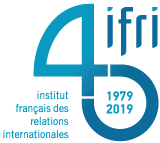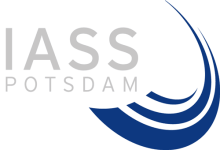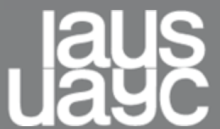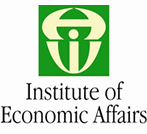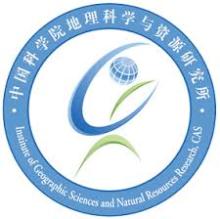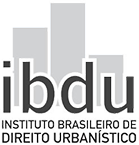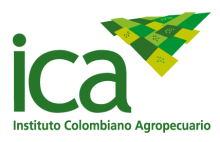The Land Library includes resources from more than 1,900 national and international information providers. Learn more about the organizations and institutions using the Land Portal to share their open-access research, data and stories.
Institut de recherche pour le développement
The IRD (Institut de recherche pour le développement) is a multidisciplinary research institute dedicated to working closely with partner countries on global development issues. Placed under the joint supervision of the French Ministry of Research and the Ministry of Foreign Affairs and International
Development, the IRD uses an original approach on development research and expertise throughout its international network in over 90 countries. The IRD aims at using its research and tools for the benefit of countries that make science and innovation the prime levers for development.
In march 2015 and the appointment of a new governance, the IRD established a newly restructured organization engaged in a global approach to development. Thanks to its scientific excellence and international cooperation model, the IRD is positioning itself in a globalized research context as a scientific leader dedicated to positioning research for development as a major tool for the new development agenda.
Institut de Recherche sur l'Asie du Sud-Est Contemporaine
Missions
L’Irasec a pour vocation de développer la recherche française sur l’Asie du Sud-Est contemporaine. Les projets de recherches développés par l’Institut portent sur les évolutions politiques, sociales, économiques et environnementales ainsi que sur les dynamiques d’intégration régionale des onze pays de la région – Birmanie, Brunei, Cambodge, Indonésie, Laos, Malaisie, Philippines, Singapour, Thaïlande, Timor Leste et Viêt Nam. Aux expertises portées collectivement ou séparément sur les différents pays du sud-est asiatique, vient s’ajouter l’Asean pris comme telle pour objet d’étude.
L’IRASEC s’est donné quatre missions principales, à savoir :
- La recherche fondamentale coordonnée par une équipe de chercheurs CNRS en détachement, de maîtres de conférence accueillis en délégation, de jeunes chercheurs (doctorants, docteurs et post doctorants) pouvant bénéficier d’une bourse et/ou d’un soutien à la recherche ; il s’agit dans tous les cas de spécialistes du sud-est asiatique en sciences politiques, en sciences économiques et en sciences sociales (anthropologie, sociologie, géographie, droit, histoire contemporaine).
- L’expertise des enjeux sociaux et économiques contemporains. Basés dans les différents pays de l’Asie du Sud-Est, les chercheurs de l’Irasec sont au plus près des réalités et des recompositions sociales et géopolitiques de la région. Les analyses de l’Irasec dépassent le seul domaine scientifique : elles intéressent directement les acteurs et les décideurs du développement, ainsi qu’un plus large public ouvert aux enjeux contemporains du sud-est asiatique.
- La publication scientifique : l’Irasec déploie un éventail diversifié de collections éditoriales. Qu’il s’agisse des monographies nationales ou transnationales, ou qu’il s’agisse des publications en ligne (Carnet de l’IRASEC ou Notes de l’IRASEC). En tant que tête de pont de la recherche en Asie du Sud-Est, l’Institut porte à travers ses publications un regard croisé et pluridisciplinaire sur la région. Nos ouvrages, en langues française et anglaise, évalués par un comité de lecture, sont publiés en partenariat avec des éditeurs faisant autorité dans le milieu scientifique (Éditions du Cnrs, Les Indes savantes, Perrin, NUS Press, ISEAS Publishing, I.B. Tauris, Palgrave Macmillan, etc.).
- La transmission des connaissances et la diffusion du savoir par le biais de conférences, de colloques et de publications. L’Irasec organise des événements scientifiques avec nos partenaires locaux au sein des pôles académiques de la région (universités, séminaires d’instituts de recherche, Alliances françaises, etc.) à l’occasion de la sortie des ouvrages qu’il coordonne.
Institut français des relations internationales
L’Ifri, le think tank français de référence sur les questions internationales
Classé ces trois dernières années dans le trio de tête des think tanks les plus influents au monde par le Global Go To Think Tank Index Report* de l’Université de Pennsylvanie, l'Ifri occupe également en 2019 le 3e rang du classement général et le premier, hors États-Unis, dans la catégorie "Foreign Policy and International Affairs".
Institute for Advanced Sustainability Studies
The Potsdam Nobel Laureates Symposium “Global Sustainability – A Nobel Cause” brought together internationally renowned scientists and decision-makers under the patronage of German Chancellor Dr Angela Merkel in 2007. The symposium produced the highly regarded Potsdam Memorandum, which calls for a joint effort to tap into “all sources of innovation and invention” to meet the challenges of the twenty-first century. Specifically, it identifies the need for a new “global contract” to increase sustainability in the age of the Anthropocene.
From this starting point, representatives of the German Science Alliance developed a concept for a novel research institute in 2008, from which the Institute for Advanced Sustainability Studies (IASS) emerged. The IASS was officially founded in 2009 as a joint initiative of the German Federal Government, the Federal State of Brandenburg and the research organisations of the German Science Alliance. Potsdam was chosen as the location for the institute due to its excellent research landscape with world-class research institutions such as the Potsdam Institute for Climate Impact Research (PIK) and the Helmholtz Centre Potsdam - GFZ German Research Centre for Geosciences, as well as its close proximity to politics, media and non-governmental organisations in Berlin.
In its research the IASS aims to merge all relevant types of knowledge – both within and outside science – in order to jointly find solutions that help us initiate, support and scientifically accompany the transformation to sustainable development. In accordance with its mission, the IASS involves a wide range of stakeholders from all parts of society in a transdisciplinary process with the goal of developing solutions, and it does not view these stakeholders as mere addressees of the institute’s findings at the end of the research process. Our transdisciplinary research processes are based on excellent disciplinary and interdisciplinary research; at the same time, the questions they raise and the results they produce feed into such research. The IASS does not merely work to create the knowledge needed for action; it also discusses its findings with representatives of politics, industry and civil society and furthers the transformation process through this kind of consultation.
Institute for Agriculture and Trade Policy
Mission statement
IATP works locally and globally at the intersection of policy and practice to ensure fair and sustainable food, farm and trade systems.
Rooted in family farms
In the mid-1980s, family farmers across America were in the fight of their lives. Prices had dropped below the cost of production. Family farmers were told they were inefficient and they had to either get big or get out. Deeply flawed national and international policies were the root cause of the crisis. A galvanizing effort to save the family farm helped spawn the Institute for Agriculture and Trade Policy (IATP). In 1986, IATP began documenting the underlying causes of America's rural crisis and proposing policies that would benefit farmers, consumers, rural communities and the environment. Read more about IATP's history
Facing globalization
IATP works with organizations around the world to analyze how global trade agreements impact domestic farm and food policies. Alongside a global coalition, IATP advocates for fair trade policies that promote strong health standards, labor and human rights, the environment and, most fundamentally, democratic institutions.
Building sustainability
We are developing alternative economic models that include clean sources of energy such as wind power and biofuel that would spur rural development. We're working with landowners to form cooperatives that promote sustainable forest management. We're advocating for green businesses and farms that reduce toxic runoff into the Great Lakes and Mississippi River.
Safe food, healthy ecosystems
We are working to stop the overuse of antibiotics in agriculture and aquaculture, while limiting the release of mercury and other toxic pollutants that fall onto farmland and enter the food supply. IATP is also monitoring the impact of genetically engineered crops on the environment, human health and farmer income.
Institute for Constitutional Studies
About Us
The Institute for Constitutional Studies (ICS) was originally set up in 2007. ICS has been working on constitutional and governance issues since its inception.
Vision
Develop the capacity of Public Officials, Civil Society Activists and General Public on democratic governance to achieve good governance, inclusive government and accountability
Mission
conduct research and increase public awareness on constitutional and governance issues and also advocate good governance, an inclusive government, accountability, reconciliation and respect for basic human rights.
Institute for Fisheries Management and Coastal Community Development - Aalborg University
IFM is a social science research and advisory centre working with fisheries and marine management and coastal community development. In particular, IFM focuses on questions of governance within an ecosystem-based approach to marine management. IFM is specialised in crossdisciplinary collaboration and is frequently teaming up with institutions/colleagues from other disciplines in order to develop suitable solutions to the problems in question.
Institute for Food and Development Policy
Food First, also known as the Institute for Food and Development Policy, is a nonprofit organization based in Oakland, California, USA. Founded in 1975 by Frances Moore Lappé and Joseph Collins, it describes itself as a "people's think tank and education-for-action center".[1]
Its mission is “to eliminate the injustices that cause hunger”. According to the Food First website, its main goal is to forge food sovereignty for human rights and sustainable livelihoods, and to do so it has three programs of development: building local agri-foods systems, farmers forming food sovereignty, and democratizing development.[2] The organization is meant to offer policy analysis on poverty, agriculture, and development, and is highly critical of the policies implemented by the World Bank and the International Monetary Fund. The organization focuses on the Green Revolution which was supported in the 1970s and which did not produce the development people hoped for. Instead it put in place a system that has high input-costs, but does not produce a yield much higher than traditional farming methods.[3] There has been a recent resurgence of Green Revolution ideas, especially with the large-scale support of genetically modified organisms (GMOs) and high-yield-variety agriculture. Food First claims that these policies will only further global inequalities, and has produced several policy briefs stating that the way to establish fair and effective development is through local sustainable agriculture.
Institute for Global Environmental Strategies
The Institute for Global Environmental Strategies (IGES) was established in March 1998 under an initiative of the Japanese government and with the support of Kanagawa Prefecture based on the “Charter for the Establishment of the Institute for Global Environmental Strategies”. The aim of the Institute is to achieve a new paradigm for civilization and conduct innovative policy development and strategic research for environmental measures, reflecting the results of research into political decisions for realising sustainable development both in the Asia-Pacific region and globally. IGES made the transition to a Public Interest Incorporated Foundation in April 2012.
Institute for Health Metrics and Evaluation
The Institute for Health Metrics and Evaluation (IHME) is an independent global health research center at the University of Washington that provides rigorous and comparable measurement of the world's most important health problems and evaluates the strategies used to address them. IHME makes this information freely available so that policymakers have the evidence they need to make informed decisions about how to allocate resources to best improve population health.
Vision
IHME aspires to make available to the world high-quality information on population health, its determinants, and the performance of health systems. We seek to achieve this directly, by catalyzing the work of others, and by training researchers as well as policymakers.
Mission
Our mission is to improve the health of the world’s populations by providing the best information on population health.
Institute for Human Rights and Business
Companies can both positively and negatively impact the lives of their staff, the workers in their supply chains, the communities around their operations, and society more widely. Many of these negative impacts – large and small – are avoidable. If every business understood how its actions could undermine respect for human rights and took proactive steps to prevent their impacts, the world would be a different place. Responsible business prevents potential harms, ensures accountability and delivers lasting value.
Founded in 2009, IHRB is the leading international think tank on business and human rights. IHRB’s mission is to shape policy, advance practice and strengthen accountability in order to make respect for human rights part of everyday business.
IHRB’s programmes are organised around key ‘flows’ fundamental to social and economic development, namely: flows of workers, flows of finance, flows of commodities and flows of information. These underpin IHRB’s work on migrant workers and the financial, extractives and ICT sectors respectively. In addition, IHRB is developing a programme on human rights and mega-sporting events and is a founding partner in the development of the first wide-scale benchmark on corporate human rights performance.
IHRB works across its programmes with public and private sector partners in both developing and developed countries. In particular, IHRB has founded centres for responsible business in Myanmar, Kenya and Colombia that mirror its mission and activities at a local level
Institute for Law and Environmental Governance
ILEG is an independent, non-profit public interest law and policy organization focused on promoting sustainable development. We work with local communities, governments, the private sector and civil society organizations (CSOs) to ensure fair, balanced and equitable development policy choices to improve peoples’ lives and protect the environment. Our work seeks to transform the way governments make decisions that affect the environment and natural resources on which livelihoods depend. We are dedicated to finding practical options that shift the ways governments make and implement laws and policies, the way businesses operate, and the way people actin relation to the environment.
Established in 2002, ILEG works mainly in Kenya and the wider Eastern Africa region. But our work has significant continental and global reach and influence. We work with our partners in Kenya, Africa and internationally to shape sustainable development decisions for the benefit of present and future generations.
Institute for Peace and Security Studies
The Institute for Peace and Security Studies (IPSS) at the Addis Ababa University is the premiere institute for education, research, and policy dialogues on peace and security in Africa. Established in 2007, it is now among the top 50 think-tanks in Sub-Saharan Africa according the 2014, 2015 and 2016 Global Go To Think Tank Index Reports. In 2010, IPSS was also identified by Addis Ababa University as one of its five “Centres of Excellence”. Its Africa Peace and Security Programme (APSP), a joint initiative with the African Union, is mandated by the AU Executive Council Decision (EX.CL/567 XVI), and the follow-up Memorandum of Understanding signed between the two institutions, to take up the intellectual challenge of finding African-led solutions to peace and security in Africa.
IPSS produces skilled professionals in conflict prevention, management, resolution, peacebuilding, and promotes the values of a democratic and peaceful society. We currently offer five education programmes: a one-year Executive MA on Managing Peace and Security in Africa (MPSA), a two-year MA Programme in Peace and Security Studies; a PhD Programme in Peace, Security, Federalism and Human Rights; and joint MA and PhD programmes in Global Studies. IPSS also serves as the secretariat of the Tana High-Level Forum on Security in Africa, an annual high-level gathering of heads of state, policymakers, academia, and the private sector to discuss and find solutions to Africa’s challenges in peace and security.
Institute for Poverty, Land and Agrarian Studies
PLAAS was founded in 1995 as a specialist unit in the School of Government, Economic and Management Sciences Faculty at the University of the Western Cape (UWC), Cape Town. Since then, PLAAS has developed a proven track record of undertaking high-quality research on land and agrarian reform, poverty, and natural resource management in South Africa and the southern African region.
Besides research and postgraduate teaching, PLAAS undertakes training, provides advisory, facilitation and evaluation services and is active in the field of national policy development. Through these activities, and by seeking to apply the tools of critical scholarship to questions of policy and practice, we seek to develop new knowledge and fresh approaches to the transformation of society in southern Africa.
Institute for Regional Security
The Institute’s mission is the promotion of the peace, stability and prosperity of the peoples of the Indo-Pacific region through policy research, policy advice and advocacy, international dialogues, and the professional development of policy-makers.
Institute for Security Studies Africa
The Institute for Security Studies is a leading African organisation that enhances human security to enable sustainable development and economic prosperity in Africa. It works across the continent, doing authoritative research, providing expert policy advice and delivering practical training and technical assistance.
The ISS has established a niche in Africa. It provides a unique package of services to governments, intergovernmental organisations and civil society by combining research with an ability to convene key decision makers to discuss policy options and partner on capacity building. The ISS invests in a collaborative approach to fulfil its vision of a peaceful and prosperous Africa for all its people.
The ISS head office is in Pretoria, South Africa. Regional offices are located in: Nairobi, Kenya; Addis Ababa, Ethiopia; and Dakar, Senegal.
In 1991 the former executive director, Dr Jakkie Cilliers and Mr PB Mertz founded the ISS. At the time it was called the Institute for Defence Policy.
Institute of Applied Economic Research
The Institute of Applied Economic Research (Portuguese: Instituto de Pesquisa Econômica Aplicada, Ipea) is a Brazilian government-led research organization dedicated to generation of macroeconomical, sectorial and thematic studies in order to base government planning and policy making.
It was created on 1964. It maintains libraries in Brasilia and Rio de Janeiro.
Institute of Architecture and Urban & Spatial Planning of Serbia
The Institute of Architecture and Urban & Spatial Planning of Serbia (IAUS) was founded in 1954 within the Faculty of Architecture. It was established as an independent scientific research organization by the Decision of the Republic Executive Council No.N/303 of May 13, 1961. The Institute’s scientific research and professional work is carried out within three organizational units as follows:
- Center for Architecture and Housing;
- Center for Spatial Development and Environment, and
- Center for Information Technology, Publishing Activities and Education.
The Institute has 40 full-time permanent employees of various professional orientations (30 of which are holders of scientific, research or professional titles). It also gathers many visiting associates - experts in specific fields.
The Institute has been established with the aim to deal with research and educational work, as well as work on comprehensive projects in the field of architecture and urban planning. In previous period, due to specific conditions of financing scientific research projects, greater results were achieved in professional work, particularly in architectural and urban designing, as well as spatial and urban planning. In the last 15 years the Institute has achieved greater scope and noticeable results in the scientific and research work.
Institute of Developing Economies, Japan External Trade Organization
Our Goal: Intellectual Contributions to the World
The Institute of Developing Economies (IDE) aims to make intellectual contributions to the world as a leading center of social-science research on developing regions. We accumulate locally-grounded knowledge on these areas, clarify the conditions and issues they are facing, and disseminate a better understanding of these areas both domestically and abroad. These activities provide an intellectual foundation to facilitate cooperation between Japan and the international community for addressing development issues.
Name
Institute of Developing Economies, Japan External Trade Organization (IDE-JETRO)
(A research institution affiliated with JETRO, which is an incorporated administrative agency)
Institute of Development Studies
The Institute of Development Studies (IDS) is a leading global institution for development research, teaching and learning, and impact and communications, based at the University of Sussex.
Our vision is of equal and sustainable societies, locally and globally, where everyone can live secure, fulfilling lives free from poverty and injustice. We believe passionately that cutting-edge research, knowledge and evidence are crucial in shaping the changes needed for our broader vision to be realised, and to support people, societies and institutions to navigate the challenges ahead.
Through our commitment to engaged excellence we work towards transformations that reduce inequalities, accelerate sustainability and build more inclusive and secure societies. We do this neither as a university organisation nor a thinktank, but by combining elements of both in a unique mix that is articulated in our engaged excellence approach.
Since 1966 IDS has been working with partners to tackle complex development challenges and contribute the evidence, analysis, theory and facilitated learning that can help communities, practitioners and decision-makers at all levels work together for practical, positive change. Our partnership with the University of Sussex supports and accredits our teaching and learning programmes, where in PhD studies and a range of high-level Masters’ courses we aim to produce a new generation of development thought, policy and practice leaders.
The Institute is home to approximately 100 researchers affiliated to thematic research clusters, 70 knowledge professionals, 65 professional staff and about 200 students at any one time. But the IDS community extends far beyond, encompassing an extensive network of over over 360 partners, 3,000 alumni and hundreds of former staff.
Institute of Economic Affairs, Kenya
The Institute of Economic Affairs (IEA Kenya) is a think-tank that provides a platform for informed discussions in order to influence public policy in Kenya. We seek to promote pluralism of ideas through open, active and informed debate on public policy issues. We undertake research and conduct public education on key economic and topical issues in public affairs in Kenya and the region, and utilize the outcomes of the research for policy dialogue and to influence policy making.
Mission
To inform decision-making in Kenya through policy innovation, research, analysis and dialogues.
Vision
A prosperous Kenya that has a well managed economy and that upholds constitutional principles of governance.
Core Values
Our core values drive IEA Kenya’s mission as we strive to uphold the highest ethical standards in our work:
Professional integrity. We discharge our duties diligently and in line with nationally and internationally recognized ethical and professional standards. Further, we uphold honesty, transparency, reliability and consistency in all our decisions and actions.
Innovation. We are committed to continuous learning and improvement in how we do our work. We produce high quality policy and research products and outputs by encouraging and supporting positive critique, new ideas, tools, methods and techniques in policy analysis, research, planning and capacity building.
Initiative. We believe in initiative as value for encouraging and developing leadership in our organization. We encourage staff to learn to work without supervision and for individuals to be the first in identifying an opportunity and taking appropriate action.
Inclusiveness. We are an inclusive organization where differing points of view and experiences are valued as opportunities for mutual learning.
Institute of Geographic Sciences and Natural Resources Research, Chinese Academy of Sciences
The Institute of Geographic Sciences and Natural Resources Research (IGSNRR) was established in 1999 through the merger of the former Institute of Geography (IOG), founded in 1940, and the former Commission for the Integrated Survey of Natural Resources (CISNAR), founded in 1956.
In the past half century, IGSNRR and its predecessors have led the way in geographical research in China, making major research contributions in the rational use of natural resources; ecological and environmental protection; comprehensive land consolidation; sustainable regional development; and resource and environmental information systems.
Much of the work conducted by these institutes has had a very great national impact and has received national awards. Examples include research on the spatial differentiation of China’s natural environment; research on the comprehensive management and exploitation of land in medium- and low-yield fields in the Huang-Huai-Hai Plain; study of the uplift of the Qinghai-Tibet Plateau and its effects on the natural environment and human activity; compilation of the National Physical Atlas of China; theoretical and applied research on regional development patterns; and establishment of the Chinese Ecosystem Research Network (CERN), etc. Since 1978, IGSNRR and its predecessors have won 248 national and provincial-level science and technology awards, of which 43 were national awards.
Institute of Legal Practice and Development (Rwanda)
The Institute of Legal Practice and Development(ILPD) was established by the Law No. 65/2013 0F 27/08/3013 Establishing ILPD, and was assigned to provide legal professional education to persons holding at least a Bachelor’s Degree in Law, provide training to those working in the field of justice and in related fields, promote research and disseminate law, collaborate with other institutions of learning and research in Rwanda and abroad, and support any other initiative that may contribute to the promotion of law and justice.
Vision
The vision of the institute is to “become a practical school for all legal professionals in a spirit of excellence, independence and service to the community, drawing from the diversity and richness of the civil and common law traditions”.
Mission
The mission of the institute is:
a) To contribute to the development of justice in Rwanda and the region through:
- Offering initial professional training to persons holding bachelor’s degree in law; in particular by offering post graduate program to judges, prosecutors, lawyers, bailiffs, notaries, etc, to bring their quality to international standards.
- Offering continuing legal education in order to improve knowledge and skills for other personnel in the justice sector, in particular by offering training to clerks, criminal investigating officers, mediators and all other personnel dealing with legal matters in different ministries and institutions, public as well as private.
b) To conduct legal research;
c) To contribute to the development and dissemination of the law.
Institute of Policy Analysis and Research
The Institute of Policy Analysis and Research-Rwanda is a registered independent, not-for-profit research and policy analysis Think Tank in Rwanda. It became fully functional in 2008 with the support of African Capacity Building Foundation (ACBF ) and International Development Research Center (IDRC) with initial start up support from the Government of Rwanda.
Vision
“To become an internationally recognized Centre on Policy Research on Rwanda”
Mission
To Enhance evidence based policy making and promote dialogue and a culture of debate on policy issues in Rwanda through conducting Timely, Relevant High quality Public Policy Analysis and Research.
Aims
•To be recognized internationally as the leading centre for carrying out public policy research on Rwanda in economic transformation, rural development, social welfare and social order and citizen engagement;
•To be recognized for carrying out research and policy analysis of the highest international standard in economic transformation rural development, social welfare and social order and citizen engagement;
•To be recognized for the outstanding contribution we make to informing evidenced informed policy in Rwanda and the region more broadly in economic transformation rural development, social welfare and social order and citizen engagement our four thematic areas.
Institute of Southeast Asian Studies
The Institute of Southeast Asian Studies (ISEAS), an autonomous organization established by an Act of Parliament in 1968, was renamed ISEAS - Yusof Ishak Institute in August 2015. Its primary objectives are:
- To be a leading research centre dedicated to the study of socio-political, security, and economic trends and developments in Southeast Asia and its wider geostrategic and economic environment.
- To stimulate research and debate within scholarly circles, enhance public awareness of the region, and facilitate the search for viable solutions to the varied problems confronting the region.
- To nurture a community of scholars interested in the region and to engage in research on the multi-faceted dimensions and issues of stability and security, economic development, and political, social and cultural change.
The Institute conducts a range of research programmes; holds conferences, workshops, lectures and seminars; publishes briefs, research journals and books; and generally provides a range of research support facilities, including a large library collection.
Instituto Brasileiro de Direito Urbanístico
O Instituto Brasileiro de Direito Urbanístico (IBDU) é uma associação civil de âmbito nacional constituída por juristas, urbanistas, pesquisadores, estudantes, profissionais e militantes sociais que atuam na temática urbana. Dentre os objetivos do Instituto, destacam-se: reunir especialistas em estudos urbanos de diferentes ramos disciplinares nacionais e internacionais; desenvolver pesquisas que servirão de apoio a políticas governamentais na área urbanística; promover congressos, cursos, palestras, encontros, seminários multidisciplinares, bem como editar e publicar estudos e pareceres técnicos periódicos que envolvam a área de direito urbanístico e planejamento urbano; e promover a consolidação da disciplina do Direito Urbanístico nas faculdades públicas e particulares.
Desde a sua constituição, o IBDU tem realizado pesquisas, cursos e capacitações, seminários e, como ponto alto, os Congressos Brasileiros de Direito Urbanístico, que são dedicados ao debate do Direito e das políticas públicas urbanas, bem como à apresentação e discussão de pesquisas científicas sobre temas atuais e relevantes.
A presente página destina-se à divulgação de eventos e informações relevantes na área do Direito Urbanístico.
Instituto Chico Mendes de Conservação da Biodiversidade
O Instituto Chico Mendes de Conservação da Biodiversidade é uma autarquia em regime especial. Criado dia 28 de agosto de 2007, pela Lei 11.516, o ICMBio é vinculado ao Ministério do Meio Ambiente e integra o Sistema Nacional do Meio Ambiente (Sisnama).
Cabe ao Instituto executar as ações do Sistema Nacional de Unidades de Conservação, podendo propor, implantar, gerir, proteger, fiscalizar e monitorar as UCs instituídas pela União.
Cabe a ele ainda fomentar e executar programas de pesquisa, proteção, preservação e conservação da biodiversidade e exercer o poder de polícia ambiental para a proteção das Unidades de Conservação federais.
Instituto Colombiano Agropecuario
El Instituto Colombiano Agropecuario, ICA, es una entidad Pública del Orden Nacional con personería jurídica, autonomía administrativa y patrimonio independiente, perteneciente al Sistema Nacional de Ciencia y Tecnología, adscrita al Ministerio de Agricultura y Desarrollo Rural.
El Ica tiene la jurisdicción en todo el territorio nacional, siendo su domicilio principal la ciudad de Bogotá, D.C., cuenta con 32 Gerencias Seccionales, una por departamento, con un recurso humano altamente calificado.
El Ica diseña y ejecuta estrategias para, prevenir, controlar y reducir riesgos sanitarios, biológicos y químicos para las especies animales y vegetales, que puedan afectar la producción agropecuaria, forestal, pesquera y acuícola de Colombia.
Adelanta la investigación aplicada y la administración, investigación y ordenamiento de los recursos pesqueros y acuícolas, con el fin de proteger la salud de las personas, los animales y las plantas y asegurar las condiciones del comercio.
Sus acciones se orientan a lograr una producción agropecuaria competitiva, con el fin de aportar al logro de los objetivos de la Apuesta Exportadora de Colombia. Realiza inspección y control de productos agropecuarios, animales y vegetales en los pasos fronterizos, aeropuertos y puertos.
El Ica es responsable de las negociaciones de acuerdos sanitarios y fitosanitarios bilaterales o multilaterales que permiten la comercialización de los productos agropecuarios en el exterior y mediante los cuales se busca garantizar el crecimiento de las exportaciones.
De igual manera, el Ica tiene la responsabilidad de garantizar la calidad de los insumos agrícolas y las semillas que se usan en Colombia, al tiempo que reglamenta y controla el uso de organismos vivos modificados por ingeniería genética para el sector agropecuario.
Instituto de Economia
O departamento de Economia e Planejamento Econômico (DEPE), do Instituto de Filosofia e Ciências Humanas (IFCH) da Unicamp iniciou suas atividades em 1968, com cursos de economia e planejamento econômico em nível de pós-graduação. Considera-se essa a data de nascimento do IE/Unicamp. O curso de graduação em Ciências Econômicas começa em 1970 e o Mestrado e o Doutorado em economia foram formalmente implementados ao longo daquela década (1974 e 1977, respectivamente). Em 1984, o departamento se transformou no Instituto de Economia (IE) e sua institucionalização seguiu seu caminho desde então. Nestes quase 50 anos, que se confundem com a história da Unicamp, não foram poucas nem desimportantes as contribuições do IE para a formação de quadros aos setores público e privado do país, a participação de seus alunos, docentes e pesquisadores no debate público sobre as grandes questões nacionais, e o reconhecimento de sua produção acadêmica.
Para além da variedade que felizmente marca o Instituto de Economia, talvez a sua característica principal seja um elevado grau de identidade de seus docentes, pesquisas e cursos, com uma determinada forma de enxergar as relações econômicas, a economia brasileira e sua forma de inserção no mundo. Esta identidade, que o distingue de outras instituições no Brasil e não significa ausência de críticas internas, é geralmente apresentada sob o título de “Escola de Campinas”.
Instituto de Estudios Ecuatorianos
El Instituto de Estudios Ecuatorianos (IEE) es una de las organizaciones no gubernamentales más antiguas del Ecuador. Aunque su personería jurídica fue otorgada el 27 de mayo de 1985 (Acuerdo No. 467 del Ministerio de Inclusión Económica y Social, antes Ministerio de Bienestar Social), sus antecedentes se remontan a la creación del Centro de Investigaciones y Estudios Socio – Económicos (CIESE) en el año 1976. Está formada por un grupo multidisciplinario de investigadores e investigadoras sociales que aportan metodológica y teóricamente al desarrollo de líneas de trabajo institucionales. A lo largo de todos estos años, sus objetivos centrales han sido la contribución a la investigación sobre diversas problemáticas tanto nacionales como regionales, las principales líneas han sido el carácter y las estretagias de organizaciones y movimientos sociales (indígena, campesino, de mujeres, y actualmente obrero) así como el contexto de conflictividad y disputa; las relaciones de género y el rol de las mujeres en la participación política, democrática y en la construcción de alterantivas; la capacitación y formación en distintas áreas sociales y técnicas (recursos naturales, territorio, gobiernos locales, fortalecimiento organizativo); y, el apoyo al desarrollo de los diversos sectores sociales del país. A esto se suma el acompañamiento a espacios locales, y la incidencia y contribuciión al análisis y elaboración de políticas públicas Todas estás líneas han estado acompañadas por la elaboración de herramientas metodológicas, comunicativas y pedagógicas que permitan difundir las contribuciones, ampliar el debate y dotar de argumentos a los actores sociales. El IEE tiene un perfil consolidado como organización de investigación, de formación y de asistencia técnica en desarrollo local, movimientos sociales rurales, de género y ambiente.



